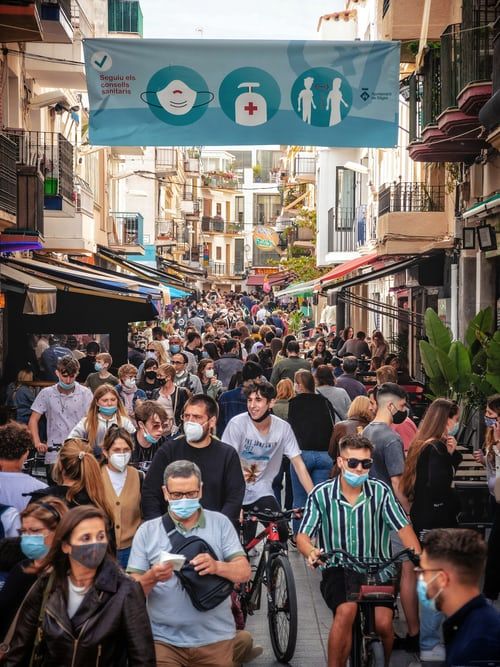Singapore and the United Kingdom are two countries that have issued statements about accepting that COVID-19 is not going away. The two ‘learn to live with the virus’ in their own ways.
Singapore and the United Kingdom have adopted, or plan to adopt different policies with a similar goal – to get back to normal. The UK has seen nearly 129000 people die since the pandemic started while 36 have lost their lives to COVID-19 in Singapore. For every 100,000 people in the UK, there have been 192.64 COVID-19 deaths and 0.63 in Singapore, going by the same ratio, according to Johns Hopkins University data.
Also read: UK drops easing of France quarantine rules; 10-day isolation period reinstated
However, Singapore, an island country with a total population of 5.69 million, wants to stop counting COVID cases. In June, the lawmakers in Singapore had published a letter in the Straits Times. “Over the coming months the city-state will gradually move toward a ‘living with Covid-19’ strategy rather than attempting to entirely keep it out and squashing outbreaks with aggressive contact tracing and quarantines,” it read. The authorities said that they were looking to change tack, moving away from daily monitoring of cases to a focus on medical outcomes such as “how many fall very sick, how many in the intensive care unit, how many need to be intubated for oxygen, and so on.”
Also read: Miscarriages not linked to COVID-19 vaccination: Report
The UK Prime Minister Boris Johnson had said that COVID-19 would become a virus that people learn to live with as they already do with flu. He added that the country’s successful COVID-19 vaccine rollout – 66% of the adult population has now received two doses of the vaccine – has broken the link between infections and severe illness. Johnson announced his plans to lift almost all coronavirus restrictions, including the mask mandate and social distancing rules in England on July 19.
More than 1200 scientists in the UK backed a letter in the journal The Lancet saying that Boris Johnson’s plan to lift most coronavirus restrictions in England on July 19 is an unethical experiment, which poses a serious threat to the rest of the world.
Also read: What is monkeypox? All you need to know
“Because of our position as a global travel hub, any variant that becomes dominant in the UK will likely spread to the rest of the globe,” Christina Pagel at University College London said during an emergency summit of scientists and doctors, newscientist.com reported.
Singapore is currently averaging 26 new COVID-19 cases a day, CNN reported. The country’s Health Minister Ong Ye Kung told Bloomberg on that Singapore’s roadmap diverged considerably from the UK’s big bang approach to reopening. “I think what we want is to take a more middle path,” he said.







